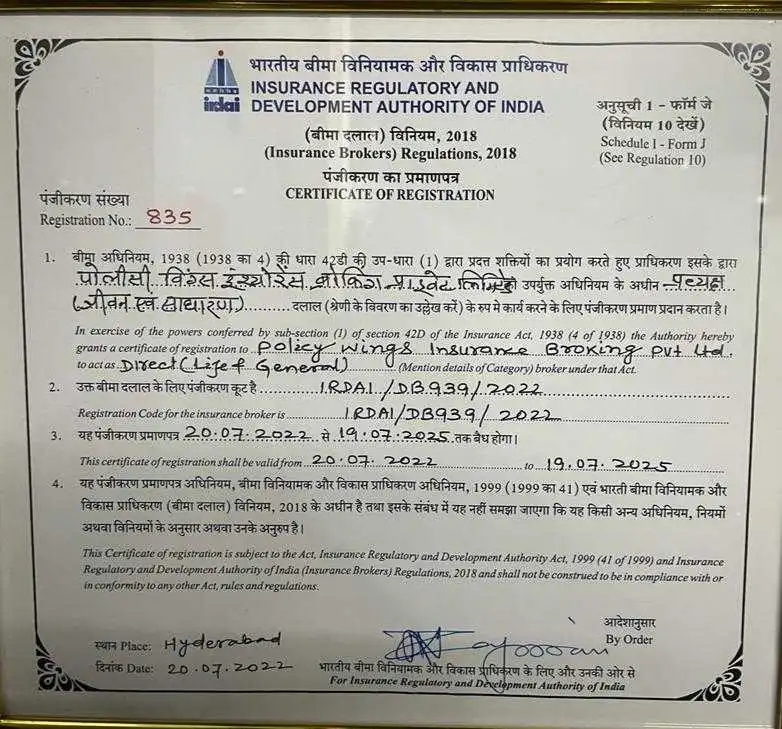How Health Insurance Premium Increases with Age

Imagine life as a journey, with each passing year bringing new experiences, milestones, and adventures. Just like the scenery changes as you travel down the road of life, so do your financial responsibilities, including the cost of health insurance. In this journey, age plays a pivotal role in shaping many aspects of your life, and one of the most significant ways it does so is through the increasing premiums of your health insurance. Yes, you read that right—your age can have a substantial impact on how much you pay for health coverage.
But fear not, for in this article, we will unravel the mystery of how health insurance premiums increase with age. We will break it down into simple terms, helping you understand why it happens, what you can do about it, and what to expect as you navigate the winding road of life with your health coverage.
Why Age Matters in Health Insurance
Age is one of the most significant determinants of health insurance premium costs. The reasons for this are based on a mix of statistics, biology, and economics.
- Medical Risks Increase with Age: As individuals age, their susceptibility to diseases and other health complications rises. Older individuals might need more regular medical check-ups, medications, and treatments. This increased frequency and cost of medical care naturally make insuring older people more expensive for insurance companies.
- Statistical Data and Actuarial Calculations: Insurance companies heavily rely on statistical data to determine the risk associated with insuring an individual. According to data, older individuals are more likely to file health insurance claims than younger ones. This trend is a result of the natural aging process, where our body’s immunity and regenerative abilities diminish over time, leading to a higher likelihood of health issues.
Greater Likelihood of Chronic Conditions: With age, the probability of having multiple chronic conditions like diabetes, hypertension, or heart disease increases. Managing these conditions is not only a long-term commitment but also a costly one, leading to higher premiums for older individuals.
The Gradual Surge in Premiums
The increment in health insurance premiums isn’t a sudden or massive jump but occurs progressively. Most insurance providers follow age brackets or bands when determining premium costs. For instance:
- Young adults (e.g., 18-25 years)
- Mid-aged adults (e.g., 26-35 years)
- Senior adults (e.g., 56-65 years)
- Super-senior citizens (65+ years)
At every transition from one bracket to the next, you’ll witness a marked increase in the premium amount. However, the steepest hikes are often reserved for the last two brackets, considering the elevated health risks associated with them.
How To Combat Rising Premiums
Though the increase in health insurance premiums with age is unavoidable, there are ways to ensure that you get the most value for your money.
Buy Early:
Purchasing a health insurance policy when you’re young can lock you into more favorable rates for longer durations. This approach might also provide added benefits like shorter waiting periods for pre-existing conditions.
Maintain a Healthy Lifestyle:
While genetics play a role, your health is also influenced by your lifestyle choices. Regular exercise, a balanced diet, regular medical check-ups, and abstaining from smoking or excessive alcohol consumption can reduce your risk of many health issues, potentially lowering your premiums or at least slowing their rise.
Consider Health Savings Accounts (HSAs):
Some insurance plans come with HSAs, allowing you to save money tax-free for medical expenses. This can be an excellent way to offset the increasing costs of health insurance as you age.
Group Health Insurance:
Often, employers offer group health insurance policies, which generally have standardized rates for all employees, regardless of age. While they might have some limitations, these policies can serve as a buffer against the escalating personal health insurance premiums.
Shop Around:
It’s always wise to compare different insurance plans and providers periodically. Sometimes, switching to a new plan or provider might offer better benefits or lower premiums.
Wrapping Up
The relationship between age and health insurance premium is direct and inevitable. As we age, our bodies become more vulnerable, making us more prone to illnesses and health complications. From the insurer’s perspective, this equates to higher risk, hence higher premiums.
While you can’t stop the clock, you can make informed decisions that can help in buffering against the steep rise in premiums. Investing in a policy at a younger age, maintaining a healthy lifestyle, and staying updated with the best available options in the market can make the journey more manageable and affordable. Remember, the goal isn’t just to find the cheapest policy but the one that offers the best coverage for your unique needs as you age.
Related Posts
FAQs
Age is a key factor in determining health risks. As one grows older, the likelihood of health issues and the need for medical care typically increases, making older individuals a higher risk for insurance providers.
Premiums usually rise progressively with age. However, transitions into senior age brackets, especially post-50 or 60, often come with more notable increases due to heightened health risks.
While a healthy lifestyle can’t negate the impact of age on premiums, it can potentially slow their rise. Some insurers offer incentives or discounts to policyholders who maintain a healthy lifestyle.
Premiums generally adjust annually. The exact amount of increase depends on multiple factors, including age and the insurer’s rate adjustments.
Buying early might lock you into favorable rates initially, but premiums will still rise with age and other factors like inflation. However, the increase might be more gradual compared to someone who buys insurance at an older age.











